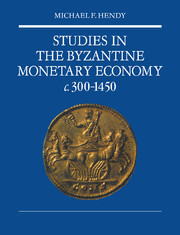Book contents
- Frontmatter
- Contents
- List of plates
- List of maps
- List of tables
- Abbreviations
- Preface and acknowledgements
- Introduction
- SECTION I ECONOMY AND SOCIETY
- SECTION II FINANCE
- 3 The budget
- 4 The limiting factors
- SECTION III COINAGE (CIRCULATION)
- SECTION IV COINAGE (PRODUCTION)
- Preliminary observations, future directions
- Bibliographies
- Key to plates
- Indexes
- Plate section
3 - The budget
Published online by Cambridge University Press: 05 November 2011
- Frontmatter
- Contents
- List of plates
- List of maps
- List of tables
- Abbreviations
- Preface and acknowledgements
- Introduction
- SECTION I ECONOMY AND SOCIETY
- SECTION II FINANCE
- 3 The budget
- 4 The limiting factors
- SECTION III COINAGE (CIRCULATION)
- SECTION IV COINAGE (PRODUCTION)
- Preliminary observations, future directions
- Bibliographies
- Key to plates
- Indexes
- Plate section
Summary
GENERAL
It is axiomatic that, in the vast majority of cases, the largest single source of public revenue available to an ancient or mediaeval state was one based on the product of the land lying within its territorial boundaries. It is also axiomatic that, similarly, by far the largest object of public expenditure in such a state was the single one consisting of its military forces and, a fortiori, the composite one consisting of its military forces, civil service and public works. Although there is no absolute proof of either axiom as regards the later Roman and Byzantine empire, there is nevertheless every reason to believe both to have been conformed to.
Although, as pointed out in the preceding paragraph, there is no absolute proof as to the validity of either axiom, nevertheless there do exist a number of extremely suggestive indications as to their validity. It has been calculated1 that, in the fifth and sixth centuries, the revenue derived from land and agriculture amounted to something like twenty times that derived from trade and industry. The precise figures of 95% (land) and 5% (trade) are doubtless open to dispute, but their order is likely to be correct.
According to Gregoras, Andronicus II's attempt at fiscal reform in c. 13 21 resulted in the imperial revenue amounting to a million hyperpyra a year, and, according to the same author, the Latins (i.e. Genoese) of Galata were receiving an annual revenue (obviously deriving largely from customs-dues), in c. 1348, of 200,000 hyperpyra, while Constantinople itself was receiving 30,000 only.
- Type
- Chapter
- Information
- Studies in the Byzantine Monetary Economy c.300–1450 , pp. 157 - 220Publisher: Cambridge University PressPrint publication year: 1985



